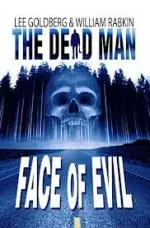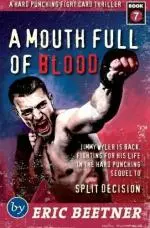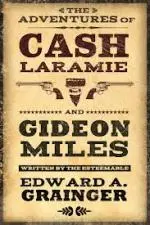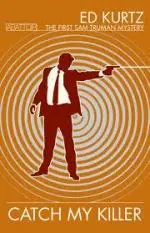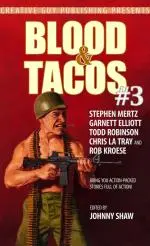A couple of years ago, Amazon was heavily advertising its Kindle eReader with this little commercial below:
With its choice of music, setting, color schemes, locale, etc., it's obvious that the advertisement is geared towards women-- and there's nothing really wrong with that per se. Sure, a few bloggers were a little steamed at the spot, feeling that the commercial was excluding too big a chunk of the population, but come on. If you work in marketing, particularly if you work in publishing, you know that women simply buy more books than men, and they always have, so why invest the time and energy trying to crack the enigma that is the reading habits of men?
Needless to say, it’s been a long road in trying to figure out what exactly will make a man pick up a book. For the better part of a century, publishing has been scratching their collective heads wondering what the Average Joe likes to read. Was it action and adventure? Was it hard men and women in peril? Was it cowboys and Indians? Was it sports? Was it a weird combo of them all? And during that time, more than a few memorable series characters were created to attract men to reading: Doc Savage, Mike Shayne, Shell Scott, Remo Williams (The Destroyer), Mack Bolan (The Executioner, and its spin-off series, Phoenix Force), Richard Camelion (The Death Merchant), and Nick Carter (Killmaster), just to name a few. But by the mid-nineties (when sales statistics were being gathered and ruthlessly acted upon) the men’s action adventure novel more or less faded from existence.
Now we fast-forward to the here and now, and yes, sales statistics are still being ruthlessly acted upon and the big six still aren’t touching men’s adventure stories with a ten foot poll. But with it being the here and now, who the fuck needs the big six when you can do it yourself, or go through a publisher who has zero problem with taking risks in the age of eBooks?
Introducing Pulp 2.0:
Yes, almost all of the characters I mentioned above were created, for the most part, to attract male readers. But let’s face facts; the books of pulp 2.0 aren’t exclusively geared towards men anymore. (And also, did these books really need to be?) They use the same tropes of series characters/shared universes, the same balls to the wall action, the same tightly written plots, same slim length (most Pulp 2.0 novels are in the 175-to-200-page range) and are meant to be read in one or two sittings, which, as far as I’m concerned, is the perfect length for eReaders. The biggest difference you’ll notice between the new pulp and men’s adventure of old is that none of the new creators even remotely adhere to a single genre.
![]() The Dead Man Series created by Lee Goldberg and William Rabkin:
The Dead Man Series created by Lee Goldberg and William Rabkin:
The Dead Man books are tightly drafted pieces of horror/action pulp and, much like their predecessors, most of the volumes in the series are “ghostwritten” by a virtual who’s-who of modern pulp fiction-- including Bill Crider, James Reasoner, Christa Faust, Harry Shannon, Anthony Neil Smith-- and are at the forefront of the new pulp revolution.
Here’s the dope on The Dead Man series:
“Matt Cahill is a widower leading a quiet, solitary life—cutting wood at a lumber mill in the Pacific Northwest, watching out for his trouble-prone friend Andy, and making his first, tentative attempt at a new romance with his co-worker, Rachel. But a getaway to a ski resort goes tragically wrong and he is killed in an avalanche. That should be the end of his story, but for Matt, it's only the beginning..”
![]() The Fight Card Series created by Paul Bishop and Mel Odom:
The Fight Card Series created by Paul Bishop and Mel Odom:
The Fight Card series is one of the most brutal new pulp series, and what did you really expect when it features boxers and MMA fighters? The series has had some really hardcore stand out entries from writers such as Eric Beetner, Wayne D. Dundee, and Kevin Michaels. Here’s the blood and guts of the Fight Card Series from their website:
"The books in the Fight Card series are monthly 25,000 word novelettes, designed to be read in one or two sittings, and are inspired by the fight pulps of the ’30s and ’40s – such as Fight Stories Magazine – and Robert E. Howard’s two-fisted boxing tales featuring Sailor Steve Costigan.
By the end of 2012, the Fight Card series will have published twelve tightly plotted tales of fistic mayhem from some of the best new Pulp authors working today, each sporting a stunning cover created by artist Keith Birdsong.
2013 will also offer a full slate of monthly Fight Card titles, including the premiere of the new Fight Card MMA and Fight Card Now imprints, along with more of the successful Fight Card titles set in the noir-filled streets of the ‘50s.
Retro or modern, Fight Card novels will continue to provide inspiring, entertaining stories of tough guys caught in tough spots with nothing but their fists, wits, and fighting nature to battle against the odds. Fight Card novels are about characters and their individual journeys and how they can inspire our character and our journeys."
![]() Adventures of Cash Laramie and Gideon Miles created by David Cranmer (writing as Edward A. Grainger)
Adventures of Cash Laramie and Gideon Miles created by David Cranmer (writing as Edward A. Grainger)
I have to admit I have a bit of a warm spot for this series, and for Beat To A Pulp Press. Laramie and Miles are densely constructed, deeply flawed characters much in the same vein as most mid-century noir. Along with being featured in two short story collections, Laramie and Miles have been featured in two full length novels by Wayne D. Dundee and a novella by Heath Lowerance. (Beat To A Pulp has also released two western/horror mash-ups in Lowrance’s stellar “Hawthorne” series of novelettes. One can only hope that Laramie and Miles will someday crossover into Hawthorne’s dark world.)
Adventures of Cash Laramie and Gideon Miles is a western noir, stories spotlighting the thrilling tales of two deputy U.S. Marshals working in 1880s Wyoming Territory. Cash Laramie, raised by Native Americans, is known as the outlaw marshal for his unorthodox way of dealing with criminals and his cavalier approach to life. Gideon Miles is one of the first African American marshals in the service and has skills with guns, knives, and tracking that are unrivaled.
![]() The Sam Truman Mysteries created by Ed Kurtz
The Sam Truman Mysteries created by Ed Kurtz
Much like Goldberg and Rabkin's Dead Man series, the Sam Truman mysteries are a mash up of genres, combining elements of super-natural horror and oddball sci-fi, and contain some of the rich, dark humor of Brett Halliday’s Mike Shayne novels. Here's the skinny on the first Sam Truman novel, Catch My Killer:
"Sam Truman is a disgraced and unlicensed former private investigator without a proverbial pot to piss in. During a morning mission to scrape up enough bread to pay his rent at the flophouse, Sam intervenes in an attempted robbery and ends up shooting the robber to death with a gun he isn’t legally permitted to possess. In the aftermath of the shooting, Sam is visited by the bloody corpse of the dead robber, which is now being inhabited by the spirit of a murdered woman who charges Sam with the task of solving her murder.
Now Sam is up to his neck in a dark underworld of walking corpses, black magic, and Hell’s own army, and all because he agreed to a dead woman’s plea to “Catch my killer!”
![]() Blood and Tacos
Blood and Tacos
The brainchild of Johnny Shaw (Big Maria, Dove Season, and recently added instructor here at LitReator) Blood and Tacos is the first new pulp publisher to delve into short fiction. Each quarterly issue is 100% free on the web, or available for a measly 99 cents for your Kindle, and has featured some of the best crime writers currently working, including: Andrew Nette, Cameron Ashley, Chris La Tray (who recently had a novella accepted for The Dead Man series), Garnett Elliott, Gary Phillips, Jimmy Callaway, Ray Banks, Thomas Pluck, Todd Robinson, and Sabrina Ogden, just to name a few. The concept behind Blood & Tacos is a simple one: Each writer chooses an era and creates a new pulp hero in the same vein as The Destroyer and other men’s pulp heroes and deliver a brand-new adventure.
Overall, Pulp 2.0 is ramping up to be just as vital and as creative as its predecessors from the 60's, 70's, and 80's. And while they might not be for everyone, these indie titles have turned out some pretty interesting reading over the past couple of years.
But to be blunt, I'm not as familiar with this broad genre as I'd like to be, so tell me what writers and series—past and present—I've missed. What are some of your favorites? And what do you think of publishers using sales data to try and figure out the reading habits of a gender or race? Does it work? Or is the big six missing the boat when it comes to publishing new fiction?

About the author
Keith Rawson is a little-known pulp writer whose short fiction, poetry, essays, reviews, and interviews have been widely published both online and in print. He is the author of the short story collection The Chaos We Know (SnubNose Press)and Co-Editor of the anthology Crime Factory: The First Shift. He lives in Southern Arizona with his wife and daughter.

